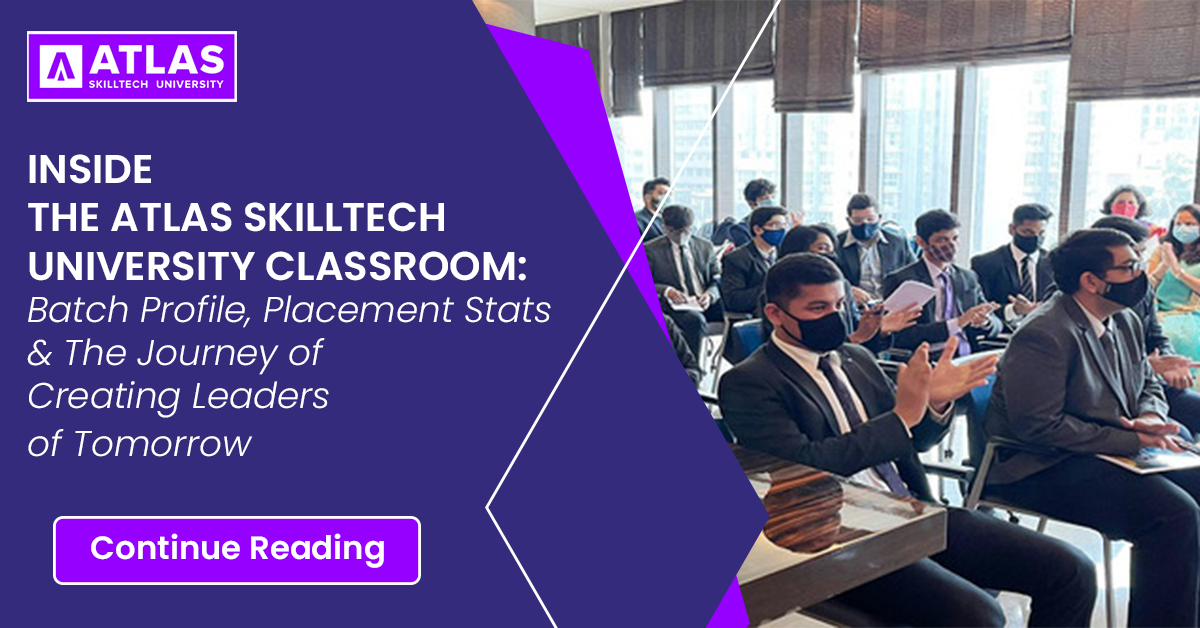Mumbai University has its roots in 1857 from the day it commenced. Time has brought many changes to the university along with the transformation of its name from Bombay to Mumbai University. John Wilson, with his background and career as an orientalist and educationist, was the founder of this university.
Currently, the university is conducting its courses under the guidance of Hon’ble Chancellor, Shri C Vidyasagar Rao. At present, the university holds a total of 711 colleges in its charge at the national level. These colleges have their own campuses and offer a wide range of research areas.
The university has three campuses- Kalyan campus, Ratnagiri campus and Thane campus located in three different regions. The university has been ranked in the band of 151-200 by the National Institutional Ranking Framework in the year 2018. BRICS nations have placed the university on 82nd place.
QS World University Rankings have added the university between places 801 and 1000. Departments at the university include Department of African Studies, Department of Dramatic Arts, Department of Eurasian Studies, Department of Extra Mural Studies, Department of Linguistics, Department of Sindhi etc.
These departments offer various courses in UG and PG levels. The university has a large team of faculty members who belong to different academic sections like Technology, Science, Law, Fine Arts etc. This dedicated and ambitious team of faculty members makes students’ achievements and the university academic excellence possible. Their years of experience coupled with skills allow them to brighten up students’ life with wisdom.
| Year of Establishment |
1857 |
| Accreditation |
By NAAC with a five-star rating |
| Approved by |
University Grants Commission |
| No. of affiliated colleges under the university |
762 |
| No. of departments in the university |
60 |
| No. of campuses |
5 |
| Geographical area of the main campus |
243 acres and 14 acres |
Courses offered & Fee S
Read More
Mumbai University has its roots in 1857 from the day it commenced. Time has brought many changes to the university along with the transformation of its name from Bombay to Mumbai University. John Wilson, with his background and career as an orientalist and educationist, was the founder of this university.
Currently, the university is conducting its courses under the guidance of Hon’ble Chancellor, Shri C Vidyasagar Rao. At present, the university holds a total of 711 colleges in its charge at the national level. These colleges have their own campuses and offer a wide range of research areas.
The university has three campuses- Kalyan campus, Ratnagiri campus and Thane campus located in three different regions. The university has been ranked in the band of 151-200 by the National Institutional Ranking Framework in the year 2018. BRICS nations have placed the university on 82nd place.
QS World University Rankings have added the university between places 801 and 1000. Departments at the university include Department of African Studies, Department of Dramatic Arts, Department of Eurasian Studies, Department of Extra Mural Studies, Department of Linguistics, Department of Sindhi etc.
These departments offer various courses in UG and PG levels. The university has a large team of faculty members who belong to different academic sections like Technology, Science, Law, Fine Arts etc. This dedicated and ambitious team of faculty members makes students’ achievements and the university academic excellence possible. Their years of experience coupled with skills allow them to brighten up students’ life with wisdom.
| Year of Establishment |
1857 |
| Accreditation |
By NAAC with a five-star rating |
| Approved by |
University Grants Commission |
| No. of affiliated colleges under the university |
762 |
| No. of departments in the university |
60 |
| No. of campuses |
5 |
| Geographical area of the main campus |
243 acres and 14 acres |
Courses offered & Fee Structure
Mumbai University courses are offered on undergraduate, postgraduate and doctorate levels. Diploma and certificate courses are also available in the university. The duration of these courses ranges between six months and five years.
Undergraduate courses
The university offers many UG courses like Bachelor of Engineering (BE), Bachelor of Science (B Sc.), Bachelor of Technology (B Tech), Bachelor of Management Studies (BMS), Bachelor of Laws (LLB) etc. The duration of these courses is three to four years. These courses are offered in full-time options.
The course fees are also less than that of other universities. For instance, B Ed course fee is Rs. 17,310, LLB course fee is Rs. 4,500, B Arch course fee is Rs. 96,200 and BSW (Bachelor of Social Work) course fee is Rs. 14,683. In Mumbai University, BA course fee is Rs. 51,750 and BSc course fee is Rs. 2,400.
Postgraduate courses
The university offers full-time PG courses like Master of Engineering (ME), M Tech, MSc, MA, Master of Labor Studies, Master of Laws (LLM), Med, MPEd (Master of Physical Education), MFM (Master in Financial Management) etc. These programs are covered in one to three years. Some of the course fees are mentioned below.
MFM course fee is Rs. 1.53 lakhs, MSc course fee is Rs. 30,000, MA fee is Rs. 11, 050 and MFA fee is Rs. 85,930.
Integrated courses
Apart from the UG and PG courses, the university also offers combined courses for specializations in specific disciplines. These programs include BSc + MSc, BA + MA etc. These programs are covered in five years. Some of the integrated courses fee are - BA and MA integrated course fee is Rs. 10,000 and BSc and MSc integrated course fee is Rs. 1.10 lakhs.
Admission Process
All the applicants are admitted to a particular university course on the basis of the marks scored in the qualifying exam either conducted by the university or the state. Candidates are required to get certain marks in order to get admission in a particular course. The qualifying exams include MHT CET, GATE, UGC NET, M Arch CET, JRF, MAF BHM etc.
The B Tech, B Pharm and MMS candidates have to get passing score required to enter in a course in the Maharashtra Common Entrance Test (MHT CET). Certain Graduate Aptitude Test Engineering (GATE) score is required by the candidates who want to take admission in M Tech. To mention, the GATE is conducted by the IITs.
University Grants Commission National Eligibility Test (UGC NET) has to be passed by the candidates of JRF conducted by National Testing Agency (NTA). These qualifying exams are followed by a personal interview round and a counselling round to get finally selected in the university.
Important to note that, to get into the university, candidates do not need to fill up the forms offline. Mumbai University online admission is available and it can be done on its website. Mumbai University registration is also done online like most universities in India.
- For Mumbai University admission in full-time M Tech course, GATE exam score is considered.
- For admission in full-time B Tech, B Pharm etc. courses, scores of MHT CET is considered.
- For admission in the PhD course, marks in the qualifying exam like UGC NET etc. are taken into consideration.
Placements
Mumbai University has its own placement cell that works for placement of the passed out students in reputed companies. On-site campus recruitment takes place that gives fair chance to the students to apply for the jobs they’re interested in.
A pre-placement talk is held between the students and the recruiters, that makes the students understand what the recruiters are looking for. Passed out students are trained by the seniors in specific areas like soft skills, personal development and etc. Till date, the highest salary offered in one of the engineering colleges that is affiliated to Mumbai University was 24 LPA by the company Rakuten.
Results and Cut-off
Mumbai University result is announced after the cut-off list of the qualifying exam results are out for the year. The cut-off list is prepared on the basis of the number of appearing candidates, difficulty level of the exam, their marks in the qualifying exam and the number of seats available in the university for a particular course.
Candidates have to cross the cut-off mark to get entry into the university. For example, M Tech candidates are required to cross GATE cut-off score and B Tech candidates have to cross MHT CET cut-off score.
Alumni Network
The university boasts of the distinguished alumni members it has given to the nation. The alumni members of the university are often invited to the important events of the university. Present students get encouraged by the alumni members and strive for academic excellence.
The alumni cell tries to maintain cordial relations with the alumni members to gain benefits for the university as well as its students. Notable alumni members of the university include Gopal Krishna Gokhale, Bhulabhai Desai, Mukesh Ambani, Vidya Balan, Anil Ambani, Kareena Kapoor, Raj Thackeray, Sachin Tendulkar, Aishwarya Rai Bachchan and many more.
Scholarships
Several scholarship schemes are being functioned under the university for the poor and meritorious students. Special scholarships for students with physical and mental disabilities are also provided. Fellowship schemes, financial aid, fee waivers etc. are the ways in which students get scholarships on a yearly basis. This help encourages the students to make more efforts on the academic front.
Campus Facilities
As it is already mentioned that, Mumbai University was established back in the year 1857, the year in which Sepoy Mutiny happened. At its initial time, the Town Hall in Mumbai was used as its office. Now, Mumbai University has a total of three campuses across Mumbai and one outside Mumbai.
The three campuses are named as Kalina Campus, Fort Campus and Thane Sub-campus. Among these three, the Fort campus carries out the only administrative work, which means no classes are conducted on the campus. Outside Mumbai, it has the campus in Ratnagiri. All of its campuses, i.e every Mumbai University address is easily accessible from any part of the country.
The Kalina Campus is being used for the Departments of Sciences, Commerce, Humanities and Technology. The campus has a lot to offer to its students, faculty members and staffs. To mention about the facilities, the campus has an Examination House, which houses the offices of the Controller of Examinations for various departments.
There is a National Centre for Nanosciences and Nanotechnology, a library called Jawaharlal Nehru Library. The University also has a radio station that operates at 107.8 MHz frequency and called MAST FM.



